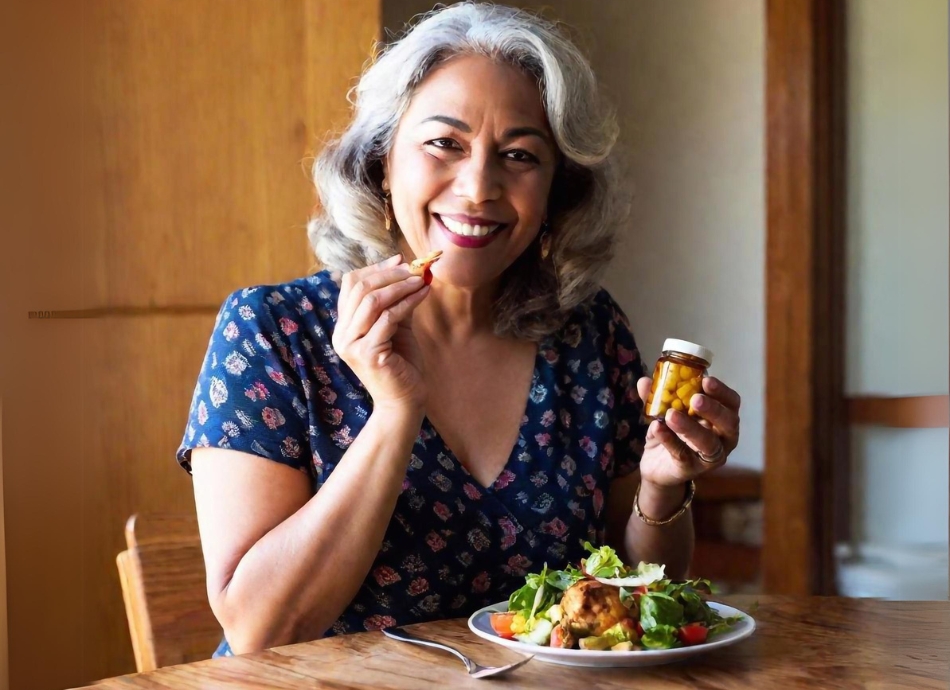The following are examples of how some foods can interact with some medicines.
Grapefruit
Eating grapefruit or drinking grapefruit juice can affect some medicines. In most cases, it increases the level of the medicine in your blood. This can increase the risk of side effects or change the effect the medicine has. Learn more about grapefruit and medicines.
Dairy products such as milk, cheese and yoghurt
The calcium in these products may bind to some medicines such as iron supplements or some antibiotics. This means that less medicine is absorbed into your body. To avoid this problem, it’s best to allow enough time between having dairy products and taking your medicines. Don’t take them together. Read the label of your medicine to check for any warnings or instructions about calcium.
Foods rich in tyramine
Some foods are high in tyramine. These include mature cheese, pickled herring, broad bean pods, meat extracts (eg, Bovril) and yeast extract (eg, Marmite and Vegemite), soy sauce and miso. Medicines called monoamine oxidase inhibitors (MAOIs) block monoamine oxidase, which is an enzyme that breaks down excess tyramine in the body. If you're taking these medicines and have foods high in tyramine, it can cause your blood pressure to rise suddenly, which can be very dangerous. A warning sign may be a throbbing headache. Read more about MAOIs and a low tyramine diet(external link).
- If you're taking tranylcypromine, you should completely avoid tyramine-rich food.
- If you're taking moclobemide or linezolid, you should avoid consuming large amounts of tyramine-rich food.
Sudden changes in diet
People taking some medicines such as warfarin need to take care with what they eat and drink. Warfarin is affected by vitamin K-rich food such as broccoli, brussels sprouts, green leafy vegetables and liver. While it’s not necessary to avoid these foods completely, sudden changes in diet that significantly increase or decrease vitamin K-rich foods can affect the way warfarin works. Read more about warfarin and diet.
Other medicines such as empagliflozin (Jardiamet) or Jardiance, can also be affected by significant changes to your diet, eg, if you suddenly start eating less or go on a keto (low carbohydrate) diet. This could increase your risk of side effects (ketoacidosis).








